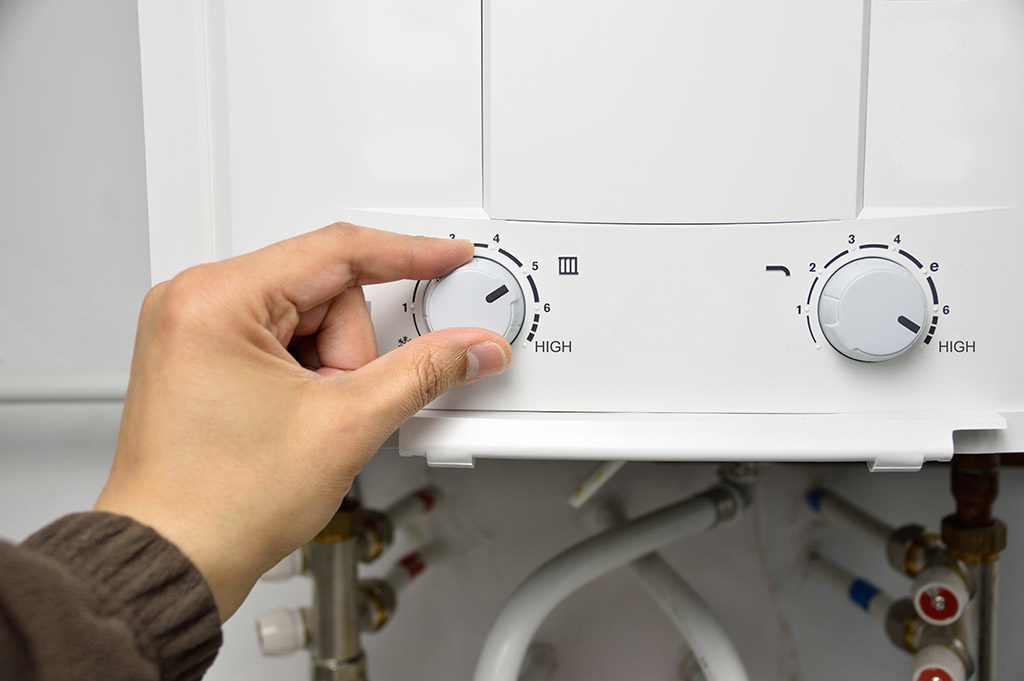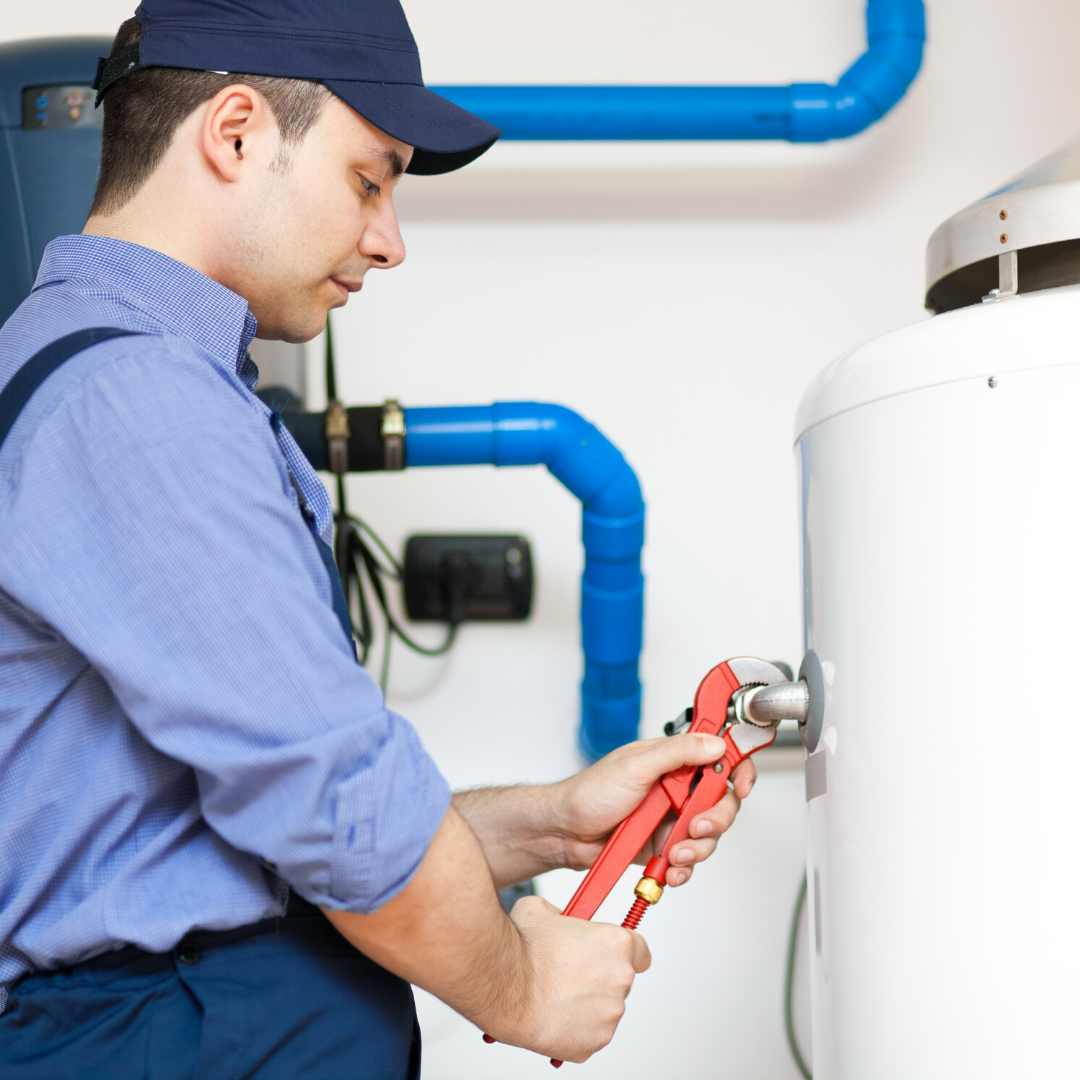This great article below relating to Is Your Water Heater Leaking? is fairly engaging. Don't miss it.

A water heater is just one of one of the most important standard appliances that can be located in a home. With hot water heater, you don't need to undergo the stress and anxiety of heating water manually whenever there is a demand to wash, do the laundry, or the recipes. Nevertheless, there is always an opportunity that your water heater would break down as with most mechanical devices.
It is very important to keep in mind any type of little malfunction and tackle it swiftly prior to things leave hand. Many times, your hot water heater starts to malfunction when there is a build-up of sediments as a result of continual use. As a safety measure, regular flushing of your water heater is advised to avoid debris build-up and avoid practical failing.
Common hot water heater emergency situations as well as how to take care of them
Leaking hot water heater container.
In this situation, you ought to transform off your water heating system, permit it to cool down, and also meticulously look for the source of the trouble. At times, all you need to do is to tighten a couple of screws or pipe links in situations of small leakages. If this does not function as well as the leakage lingers, you could require to use the services of a service technician for an ideal replacement.
Varying water temperature.
Your water heater could start creating water of different temperature levels normally ice chilly or scalding warm. There could be a demand to replace either the thermostat or the heating unit of your water heating unit.
Too little warm water
Taking care of an insufficient supply of warm water can be aggravating. It might be that the hot water heater can't support the hot water demand for your apartment. To handle this issue, you can try to readjust your heater's temperature dial and wait for a few minutes. If the problem persists, you can ask for the help of a professional plumber. Conversely, you can upgrade your hot water heater to one with a bigger capability.
Stained or odiferous water
When this happens, you need to understand if the issue is from the storage tank or the water source. If there is no amusing smell when you run cold water, then you are specific that it is your hot water heater that is faulty. The stinky water can be caused by rust or the accumulation of bacteria or sediments in the water heater tank. You can try flushing out your container or replacing the anode if the problem lingers as soon as you observe this. The function of the anode is to clean out bacteria from your container. Considering that the anode rod substitute needs a detailed knowledge of your water heater, you will certainly require the assistance of an expert.
Conclusion
Some property owners disregard little warning and also minor faults in their water heater system. This just causes further damages and also a possible total break down of your device. You must take care of your hot water heater mistakes as quickly as they come near stay clear of even more expenditures and also unneeded emergency problems.
With water heating systems, you do not require to go via the stress and anxiety of heating water manually every time there is a need to take a bath, do the laundry, or the dishes. Your water heating unit might begin creating water of different temperatures typically ice chilly or scalding warm. It might be that the water heating unit can't sustain the hot water demand for your home. If there is no funny odor when you run cool water, then you are particular that it is your water heating unit that is defective. The smelly water can be triggered by rust or the build-up of germs or debris in the water heater container.
What’s Wrong With My Water Heater?
Not Enough Hot Water
You probably encounter this problem in the shower or while washing dishes. As you run your water, you’ll notice it starting to cool down. Turning up the hot faucet may not work, or it may only heat the water for a short period. Your hot water probably comes back and works normally one or two hours after you use it up.
If you’ve never had enough hot water, your heater may be too small for your home. If you haven’t had a problem until recently, there’s probably something’s wrong with your heater’s thermostat. Try adjusting it to see if you can feel a difference. Even if the thermostat’s working, the heating element itself could have burnt out. It’s also possible that a clog has restricted water flow into or out of the heater. Luckily, none of these problems are hard to fix, as long as you call them in early.
Water is Too Hot
Unregulated water heaters can make water dangerously hot. You probably have this problem if you’ve been scalded by your hot water. It’s also a likely culprit if you have trouble getting your faucets to produce a comfortable temperature. This problem is easy to fix, but it can also be a serious health hazard if you don’t address it. If you think your water is too hot, don’t doubt yourself; look into it!
Start by finding your heater’s thermostat and mark its position with a pen. Turn the thermostat to a cooler setting. Wait a couple hours to see if the problem is solved. If it isn’t, listen for boiling in the tank and look for water that comes out of the faucet steaming. In those cases, your temperature-pressure relief valve may be malfunctioning. This is a serious problem that can be dangerous, so you should have it looked at right away.
Discolored or Smelly Water
If all your water looks rusty or smells weird, there’s probably a problem with your pipes. If only your hot water looks weird, however, your water heater is probably at fault. Hot water discoloration comes in several varieties. It could look orange or brown-ish, taste rusty, or feel grainy. It could also look yellow or green-ish and taste gross or feel slimy. Either way, it’s a sign that there’s something wrong with your water heater’s tank.
Usually, hot water discoloration means sediment has built up in your tank. Sediment is made up of hardened minerals that accumulate on the inside of the water heater’s walls. When enough sediment builds up, it causes all kinds of problems–including your discolored water. Try flushing your water heater tank to clean out built up sediment. If the water still tastes rusty, your tank’s rust-preventing anode rod may have worn out. A pro can replace an anode rod easily, but without one, your tank could rust beyond repair relatively quickly.
Leaking
Water heaters can leak from several different places, and each leak means something different. If the leak is coming from a pipe above the heater, it’s possible the tank itself hasn’t been compromised. The cold inlet, hot outlet, and T&P pipes could all leak from above. Try tightening the problematic valve. If that doesn’t work, then the valve or pipe will have to be replaced.
If the leak is coming from the bottom of the tank, it’s important to determine exactly where it is. The leak could be coming out of the drain valve or your T&P valve below the tank. You can replace those valves and preserve the tank itself. If you notice the water tank itself leaking, however, that probably means it’s corroded beyond the point-of-no-return. Leaking water heaters are a big deal, so you should get yours replaced ASAP.
https://www.punctualplumberdallas.com/blog/whats-wrong-water-heater/

I'm very serious about Is Your Water Heater Leaking? and I really hope you enjoyed reading the blog post. Sharing is nice. You won't know, you will be helping someone out. We truly appreciate reading our article about Warning Signs You Need Water Heater Repairs.
Urgent plumbing issue? Connect now.